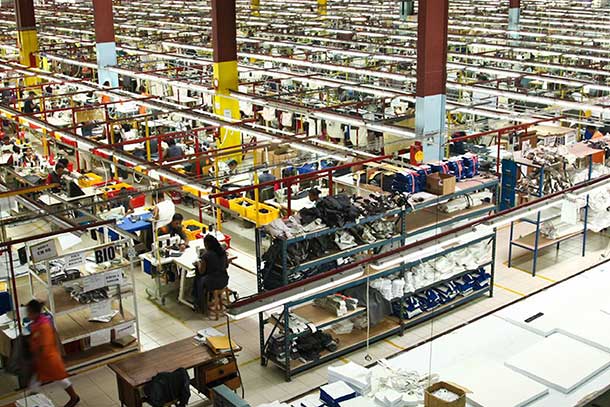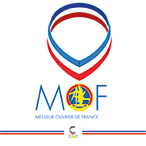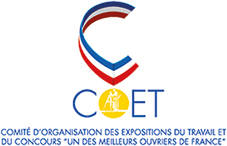Actions on our production
- Commitment #3 -
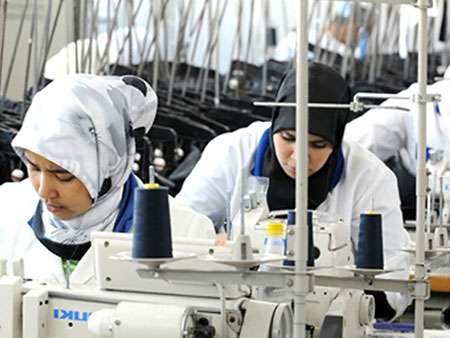
Focus 2022
The Euromed post-Covid short circuits
The pandemic has brought many health, economic and social challenges.
In this post-Covid period, we are witnessing an awareness of the excesses of globalization and the limits of a supply that is too far away. The global supply chain has been severely disrupted by the blocking of Chinese ports and the increase in the price of maritime transport (the price of containers has increased sevenfold in one year). The question of relocating production is posed to the textile industry even more than elsewhere, with the need to manufacture products as close as possible to consumers, in Europe and the Maghreb. Favoring European weavers is as virtuous for the carbon footprint as for the economy. Committed to this path for years, CEPOVETT has been confirmed in its choice to rely on local sourcing. The group has thus rethought its sourcing by balancing distant manufacturing and short Euromed circuits, optimizing its production costs, manufacturing times and carbon footprint.
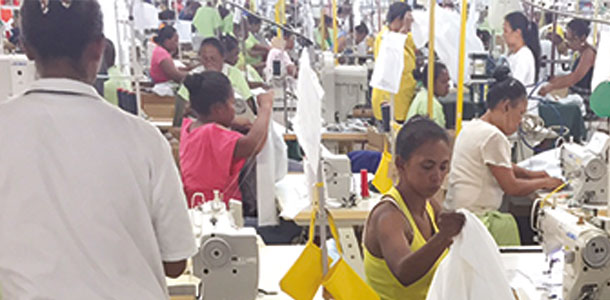
Focus 2021
Masks "Made in Madagascar" against the Coronavirus
During the year 2020, several million masks were manufactured in industrial workshops in Madagascar (Epsilon/CEPOVETT).
During the year 2020, several million masks were manufactured in industrial workshops in Madagascar (Epsilon/CEPOVETT). Several textile production lines have been converted to meet the need for a health emergency. This initiative was intended to protect the plant's personnel as well as the local population from the coronavirus. These masks were donated or sold to Malagasy security forces, NGOs and neighboring communities. This rapid and effective adaptation to the health context revealed the high level of performance and the ethical dimension of the production tool in Madagascar. With an integrated design office and dedicated resources, the workshop was able to make its work force available to local populations and meet the mask needs of a Malagasy territory particularly affected by the pandemic.
Focus 2020
Customized trade clothing
The LAFONT brand has been chosen by the Coët-MOF to dress more than 230 trades. The Best Craftsmen of France will be equipped for four years with LAFONT work clothes, according to the codes of each profession.
For example, the tricolor collar will be embroidered with each person's name, thus underlining the strength of individual will, passion, transmission and creativity put at the service of excellence. These demanding professions are grouped into 17 trade families, including catering, textiles & leather, food, construction...
Thanks to the reactivity and the industrial and logistical skills of the CEPOVETT group, the LAFONT brand can offer a tailor-made customization and embroidery service "made in France" for the outfits of the ambassadors of French craftsmanship excellence.
Focus 2019
A supply chain 2.0
CEPOVETT Group's integrated supply chain combines flexibility, technology and optimization of logistics productivity, via a new WMS. Within the framework of the extension of its logistic platform, CEPOVETT Group has reorganized all the flows, from the reception of the parcels to the storage, including the packaging and the expeditions. All these optimized flows now cross in an increased space, controlled by a powerful warehouse management system (WMS) that guarantees efficiency, traceability and continuity of service with the group's two platforms. This supply chain 2.0 limits the risks of error and ensures the safety of goods and people.
Focus 2018
An efficient and responsible supply chain
Difficult to produce, a professional garment must respect precise criteria in terms of technique, ergonomics, resistance and safety. CEPOVETT Group is responsible for the manufacture of its textile products, which scrupulously respect the defined specifications, from technical development to manufacturing to distribution. Social and environmental requirements are discussed and contracted with each partner. CEPOVETT Group works for transparency and safety in its workshops through a CSR SMETA / Sedex audit process. The company has drawn up a vigilance plan aimed at greater transparency on its production tools by involving, with it, its suppliers and subcontractors. This responsibility approach consists in going to the field, building hand in hand with its suppliers a chain of traceability as well as a relationship of trust aiming at eliminating all risks and maximizing the observed good practices.
Focus 2017
An efficient and responsible supply chain
Integrating sustainable development throughout the supply chain: this is the major project undertaken by CEPOVETT Group. Difficult to produce, a professional garment must respect precise criteria in terms of technique, ergonomics, resistance and safety. CEPOVETT Group is responsible for the manufacture of its textile products which scrupulously respect the defined specifications, from the technical development to the manufacturing on the production lines until the distribution. Social and environmental requirements are discussed and contracted with each partner. In 2016, SDG 12 is on the radar. Producing responsibly is one of the 17 sustainable development goals (SDGs) that CEPOVETT Group has made a priority to apply, as part of its CSR policy. As the successor to the Millennium Development Goals, the 17 Sustainable Development Goals (SDGs) were adopted by UN member states to end poverty, improve health and education, build more sustainable cities, combat climate change, and protect oceans and forests by 2030.
Focus 2016
CEPOVETT Group's competitive and ethical production tools
CEPOVETT Group has integrated factories in the Maghreb and Madagascar that enabled it to produce nearly 10 million garments in 2015. The production is secured by a quality management system certified ISO 9001. Quality control teams ensure daily compliance with manufacturing standards and schedules and guarantee the conformity of the items leaving the factories. In addition to product controls, the CEPOVETT Group carries out social and environmental audits of its industrial partners' factories around the world. These internal and external audits are integrated into the purchasing process to evaluate the overall performance of suppliers. Social and environmental requirements are discussed and contractually agreed with each of the industrial partners.

